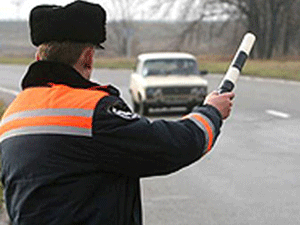Tako Khutsishvili
 Draft-amendments to the Law on Police were submitted to the parliament last week by the initiative of the government. Explanatory letter of the draft-amendments states it aims to make the Law on Police more refined, to correct the law and to support the police system in future.
Draft-amendments to the Law on Police were submitted to the parliament last week by the initiative of the government. Explanatory letter of the draft-amendments states it aims to make the Law on Police more refined, to correct the law and to support the police system in future.
The draft-amendments envisage several changes in the law. However, Article 9, Subparagraph “m” of the draft-law attracted public interest most of all. According to the new edition, during the raid policemen will have right to examine the person and transport means too – of course if the parliament adopts the draft law.
According to the draft-law, police has right “to organize raids in residential areas, on roads and territorial waters in the case of emergency situation and military operations; in order to detain criminals and offenders; during the raid the police have right to stop and examine a person and transport mean (except vehicles of diplomatic corps and consulate, international organizations and special cars for people with diplomatic immunity).”
Lawyer for the Young Lawyers Association Giorgi Gotsiridze, specialist of the constitutional law, stated the article envisages those suggestions which are working in the current law too. However, the word “examination” was added to the article. Controversial opinions resulted from the definition of this term.
“What does the “examination” mean in this particular case? The point is that “examination” is mentioned in the Administrative Code too but it does not mean the same as the Law on Police. According to the Administrative Code, the “examination” means examination of a person in order to detect whether the detainee is under influence of narcotic substance or alcohol. Search of a person is also mentioned in the same code that means superficial examination of a person and his properties. We think, examination means what the Code means under search. In the view of terminology there is no lawful limit between examination and search,” said Giorgi Gotsiridze.
Representatives of the Young Lawyers Association state the new subparagraph of the draft-law blatantly violates human rights because it gives authority to police to examine everybody.
In fact, there is threat that after the law is adopted, the patrol police will have right to search cars like soviet State Auto Inspection acted in the past. During Shevardnadze’s government corruptive police continued the traditions of the soviet militia. During the search militamen planted drugs, weapons in the cars and used other provocative methods against political opponents and ordinary citizens. Afterwards, they extorted money from the detainees. After Rose Revolution patrol police did not have right to search cars and it put an end to illegal violence on roads.
“Unfortunately, the draft-law does not estimate any standards of doubt based on which a person is suspected in crime or other offence. Without grounded doubt a person shall not be examined. We suggest the parliament to estimate the standard of doubt, or that means the police will have right to examine only those cars and people about whom they will have doubts. And our second suggestion is that police shall examine a person or a vehicle superficially in order not to turn the examination into a search,” said the lawyer for the GYLA.
The parliament will discuss the draft law in December at plenary session.



